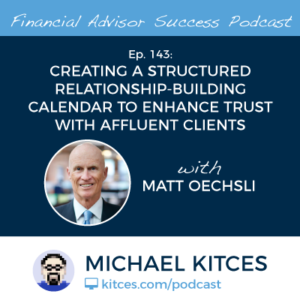In today’s highly competitive job market, many industries have more openings than there are qualified employees to fill them. Which means that many workers are finding that they have the luxury of being able to choose amongst a number of potential employers. And in an effort to recruit (and retain!) top talent, it’s important for employers to not only offer competitive pay but a compelling benefits package as well, including, in particular, a generous retirement plan. In many cases, a 401(k) plan is the retirement plan of choice, as it offers substantial contribution limits, allows employees to defer taxes on income contributed to the plan and gives employers the option to offer profit sharing and matching contributions as well (that they can deduct themselves from their business income).
The caveat, however, is that many employers (especially small business owners) lack the knowledge and time it takes to properly administer a retirement plan as a plan sponsor, which is important not only to prevent penalties and fines but also to maintain a plan’s qualified tax status. And given that there were over 83,000 ERISA-related lawsuits in the past decade alone, liability risk when offering a 401(k) plan is understandably a significant concern, as plan sponsors have a fiduciary responsibility to act prudently and in the best interest of the plan participants (i.e., the employees enrolled in the plan). This entails offering a diverse mix of investment options, ensuring that the plan expenses are reasonable, and following the documents as written for the plan.
The good news, though, is that advisors can help employers manage these responsibilities by providing various fiduciary services. More specifically, advisors may provide plan sponsors with investment-related services by serving as either an ERISA “3(21) Fiduciary” or a “3(38) Fiduciary” (named after the sections of ERISA that define a fiduciary). In addition, advisors can help plan sponsors find a reliable “3(16) Fiduciary” to provide administrative and operational support.
An advisor offering 3(21) Fiduciary services, for instance, provides a plan sponsor with investment recommendations (i.e., which funds should be included in the plan lineup), though the plan sponsor still ultimately makes all final decisions and is the party responsible for actually taking action. Thus, while a 3(21) Fiduciary’s advice should, in theory, help a plan sponsor to reduce their risk (as the 3(21) Fiduciary should have more investment experience and knowledge than the plan sponsor), the plan sponsor still retains liability for investment-related decisions. By contrast, a 3(38) Fiduciary advisor not only recommends investment options but serves as an investment manager, approving and implementing the recommendations made into the plan. When engaged as a 3(38) Fiduciary, the liability for investment management is largely shifted to the advisor and away from the plan sponsor (though the sponsor can't fully delegate the fiduciary obligation, and remains liable for prudently selecting the 3(38) Fiduciary in the first place). Finally, advisors can educate plan sponsors on the value of a 3(16) Fiduciary, who provides plan administration services. Notably, the 3(16) Fiduciary acts on behalf of the plan sponsor with respect to administrative functions and also assumes the liability for such functions. It’s important to note that both 3(21) and 3(38) Fiduciaries are generally provided by Registered Investment Advisers (but not by broker/dealers), while 3(16) Fiduciaries are typically specialized “Third Party Administrators”, and are not generally investment professionals.
Ultimately, the key point is that advisors have an opportunity to provide employers options to help them manage not just their retirement plans but their fiduciary liability in making the plan available to their employees, effectively shifting much (but not all) of the fiduciary responsibility (as well as liability) from the plan sponsor over to the Fiduciary advisor themselves. Regardless of how administrative or investment liability may be shared or shifted, though, the plan sponsor will always have the liability of due diligence in vetting and selecting appropriate Fiduciaries for the plan. Nonetheless, depending on what level of involvement the employer wants to have in their retirement plan, advisors can provide one or more types of fiduciary services to provide for the plan sponsor’s needs to balance limiting their liability, while providing the retirement plan they want to offer that helps them attract and retain top talent!






 Welcome back to the 142nd episode of Financial Advisor Success Podcast!
Welcome back to the 142nd episode of Financial Advisor Success Podcast!


